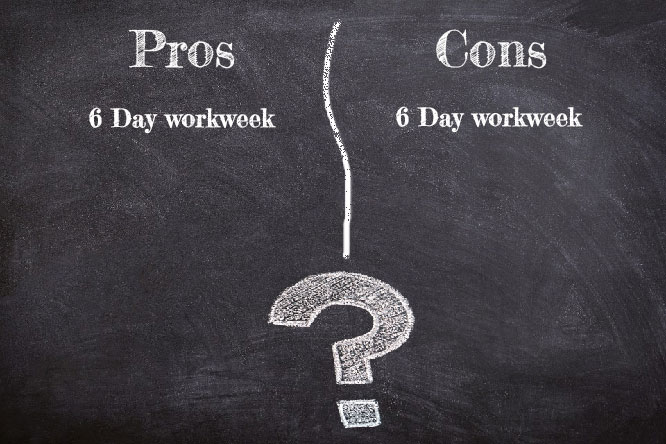Not to sound like a Zen monk of FedEx routes, but the answer is there are no good or bad routes, they are just routes. This sounds like there’s no difference between one route and the next which is not the case, as there are massive differences far beyond just what the contractor is asking for the business, it’s multiple, and the net income.
FedEx routes are not the same, but the idea of a bad route doesn’t really exist. Let me explain…
Let’s back up and consider a few other better higher level questions. The biggest question I’d love for many people to have at first isn’t whether the net income is valid, or what’s the valuation a FedEx route, but instead whether FedEx routes are a good investment for you.
Right now, I know a lot of people are thinking that if it makes money, then it’s “a good fit.”
It’s not.
If you don’t know what is required of a contractor, what the real risks are of this business, and what your day to day life is like as a contractor, then this can yield surprising discoveries when we have a call together. Secondly, there’s lots of businesses that make money just the same as there’s lots of jobs that make money – picking the right one on both sides is imperative.
If you’re still in the camp of believing that your job as a contractor is to manage your manager, then you need to get informed sooner than later about the reality of what owning a business is.
So, an even better line of questioning is,
“Do contractors really enjoy what they’re doing? What’s it really like owning FedEx routes?”
Someone getting answers to their questions isn’t beneficial if they’re not the best questions, and knowing what questions to ask is much harder than discovering their answers.
Once you discover that, you’ve established that it’s worth pursuing and looking into routes. Now, it still hasn’t answered the question of why there’s no such thing as a good or a bad route.
Some of that has to do with knowing why so many contractors are selling their routes. There’s multiple reasons that a seller claims is the reason they want to sell, and the main reason is likely not “pursuing other business interests” or “retiring” and we’ll likely never know for sure that seller’s true reasons.
Here’s some prevalent REALISTIC reasons contractors are selling their routes in 2017:
- Tired of FedEx changing the requirements for contractor’s businesses
- Struggling to deal with the additional responsibilities for contractors that’s coming down the pipeline
- Unwillingly having to restructure to comply with the 2021 Overlap Rules
- Feeling that FedEx, in efforts to secure the contractor model, has reduced its aid to contractors for their operations
- Irritated in that FedEx may have provided a contractor a very strong income, but despite the contractor’s greater aspirations, the growth rate for that business is actually capped
And so on…
But it’s important to realize that these contractors sometimes feel their routes are “bad” for one of the above reasons (or more) and have decided to sell. I’m not implying that only bad routes are for sale, because again, I don’t believe in “bad” routes to begin with.
For example, the same reason about the overlap compliance being a reason to sell is actually a massive opportunity for the right buyer. The reality is that the separation of Home Delivery and Ground created numerous efficiency problems, and some contractors that were smart ended up strategically acquiring the opposing route designation for their legally protected territory (eg. If a contractor had a Ground route, he sought to acquire the Home Delivery route in his same area). The problem was that not everyone that owned the other route type was looking to sell – people often become very attached to their routes. Therefore, the inefficiencies of HD and Ground being separated lingered throughout just about every terminal in America.
FedEx is now mandating that contractors start thinking more strategically and less emotionally by forcing the overlap requirement.
This is a good thing in reality. However, consider the contractor that may have originally bought his routes (let’s pretend they’re all Ground) years ago is now faced with getting rid of some of his precious routes either from selling or trading them. And even if a contractor doesn’t have to get rid of his routes, he’s faced with having to accumulate more.
This starts to stack up in a seller’s mind and starts to feel like this:
“Instead of working 5 days a week on this business, now I’ll have to work 6 days due to the staggered workweek of HD and Ground. I love my current routes, they’re great cash cows and my employees are fantastic and tenured. I can’t afford to buy the HD routes, so I’ll have to trade my Ground routes. And HD routes are more of a pain to operate in my territory, because it’s mostly low income housing which are notorious areas for residential complaints. I’ll be working harder throughout the day, AND working an extra 20% throughout the week because of the 6 day workweek, AND have to give up some of my routes that I’ve got going really easy for me right now. Screw it, I’ll sell.”
And that’s how you find yourself buying a “bad” route.
In my mind, this is just as easily how one can find a “good” route – by finding sellers that think like this and taking it off their hands. My definition of a good route bundle is one that can be more efficiently managed, has potential to increase profitability, and has organic as well as inorganic (eg. as in buying more routes as opposed to your routes growing from surges in package volume) growth potential. If one has the cash to acquire the other routes without having to give up the good routes that are established, then this is a fantastically easy way to grow the business. Top it all off with the philosophy that I’d rather operate a well-tuned machine of a business 6 days a week rather than one that isn’t as profitable or easy to manage in a 5 day week. In my opinion, increasing the workweek for the benefit of overall efficiency is a good trade-off.
Notice that this is a unique situation – this isn’t like a “pros and cons list” of one route vs the other.
This is illustrating the idea that the EXACT criteria that makes one route bad for someone is the EXACT criteria that makes one route good for someone else. This is just one example, and there are many reasons that routes can be “great” and many of those reasons can be reasons they’re “bad” routes.
So hopefully at this point, we’ve eliminated the idea that there’s a “good” vs “bad” route.

You might be thinking a better question at this point is, “After establishing an idea of what I’m looking for in routes, is this a good route bundle for me personally?” Strangely enough, this also has an answer that might not be very helpful since a) the operations and management of routes is actually fairly uniform throughout all routes once you understand a few solid principles and b) you know your situation far better than anyone else for them to tell you an answer. So my favorite question at this point would therefore be,
“Tell me what it’s mostly like for many contractors now that I know there’s no such thing as a good or bad route. I’m simply looking for what it’s like to manage it, so I can personally determine if it’s something I not only can do but ALSO want to do.” Beautiful. I talked a bit about this concept more in this article discussing the risks of owning routes. My goal is not only to get your questions answered, but also guide you through getting questions answered that you might not have thought of even asking yet.
Let’s presume that this is something that you want to do, so why bother with due diligence if they’re all the same?
It’s true that whether your managing 5 routes or 35 routes, the principles and ideas on how this business is operating stays predominately the same, which is a fantastic aspect of this business model that allows people to scale much more easily than many other business models out there for sale.
But in terms of getting established with your first bundle of routes, what’s being sold to you in reality vs what’s being presented to you often start to diverge from one another.
Many contractors I feel are good, reasonably honest people. But sometimes they make mistakes not even knowing what those mistakes are (eg. some keep awful financial books, some don’t understand FedEx well enough to make strong future predictions about how their contract will change in the next couple years, etc). Of course, many contractors have been coached by brokers that are very savvy on structuring things such that even astute and experienced business buyer will have an impossible time finding the truth on the route business being sold. Not to say that all brokers are unscrupulous, but when I see an offering that has things twisted around heavily, I can make a bet that a broker has helped.
In due diligence we try to establish what’s actually being sold, in regards to the net income and other critical differentiating characteristics between one route and the next. Some routes will be harder to wrap your head around more than others, and it’s critical to try to establish that so a) if you’re fortunate enough to be comparing 2 or more routes, you can accurately weigh them out in your head and b) you’re prepared mentally and financially to deal with what’s coming down the pipeline soon with the routes.
To wrap up, even for brilliantly financially minded people that are extremely savvy in business, if they’re not knowledgeable about FedEx routes specifically, then properly performing due diligence on the different levels needed is essentially impossible. The good news is that once you understand the principles of how routes operate, then the due diligence process becomes very methodical and this game ends up a lot easier.

